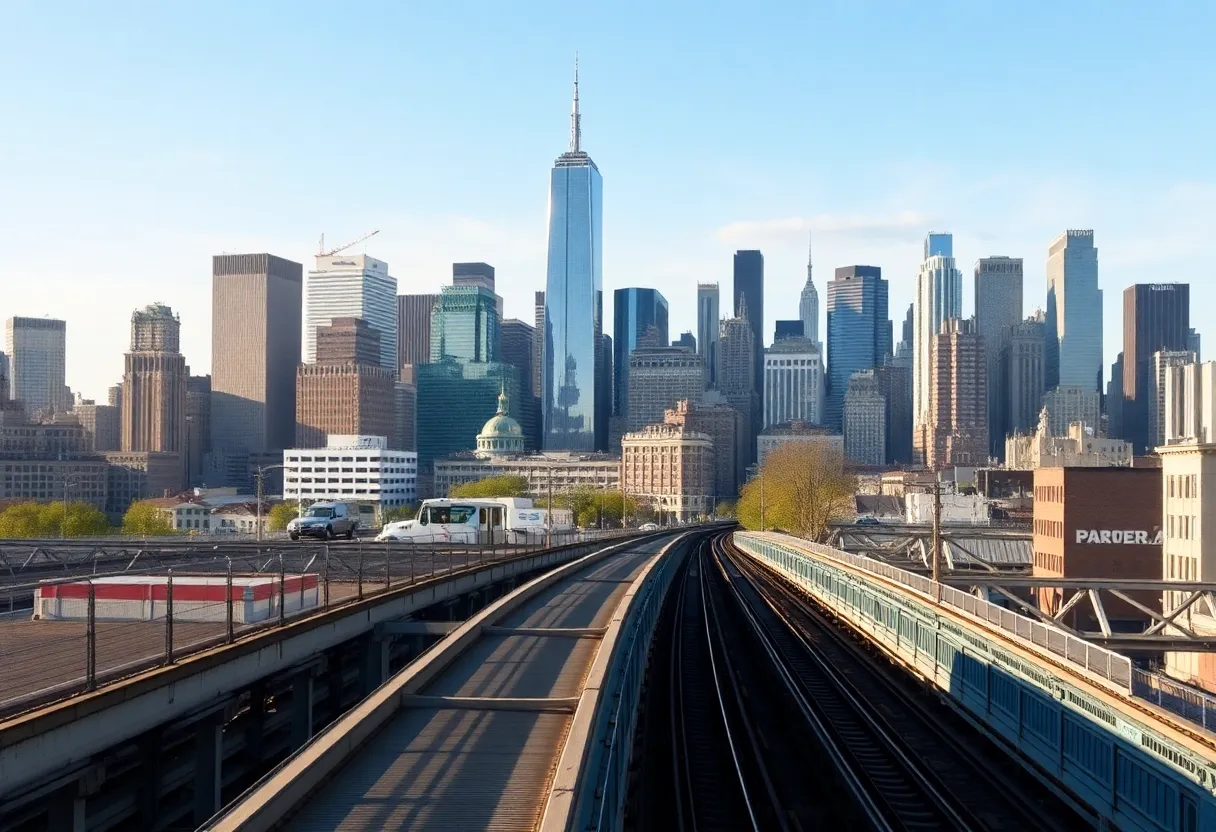News Summary
New York City lawmakers have enacted a significant payroll tax hike as part of the state budget to fund the $68 billion MTA capital plan. This tax increase affects businesses with payrolls exceeding $10 million, raising the payroll mobility tax from 0.6% to 0.895%. Smaller businesses will see a reduction in their PMT rates. While aimed at improving public transport infrastructure, the tax has sparked criticism over its potential impact on local businesses and employment.
New York City – Lawmakers in New York have finalized the most significant payroll tax hike in recent history as part of the approved $254 billion state budget. The increase aims to generate necessary funding for the Metropolitan Transportation Authority’s (MTA) ambitious $68 billion capital plan, designed to modernize and improve the state’s aging transit infrastructure.
The payroll mobility tax (PMT) for businesses within New York City that report yearly payrolls of $10 million or more will see an increase from 0.6% to 0.895%. For payroll businesses situated in Long Island, Westchester, and other suburban counties, the PMT rate will rise from 0.34% to 0.635%. This tax adjustment is projected to have repercussions for up to 10,000 companies operating in New York state.
The MTA intends to utilize the revenue generated from this payroll tax hike, which is expected to total approximately $1.4 billion annually, to fund critical updates and improvements to trains, stations, and overall infrastructure. However, the tax increase has sparked criticism, as Governor Kathy Hochul’s administration argues that it runs counter to her vision of making life more affordable for New Yorkers. Senator James Skoufis has voiced concerns on how this tax increase contrasts with the broader narrative of affordability.
Notably, companies with yearly payrolls under $1.25 million will benefit from a PMT reduction, having their rates cut in half. This adjustment seeks to alleviate the financial strain on smaller businesses amid overall increasing expenses. In addition to the payroll tax hike, the budget introduces the possibility of installing speed cameras in construction zones for MTA-operated bridges and tunnels, including the Verrazzano Bridge. This initiative will require public hearings and votes from the MTA’s board and proposes fines of $50 for the first violation, $75 for the second, and $100 for subsequent violations, aligning with measures to enhance safety and generate additional revenue.
The Dutchess County Regional Chamber of Commerce (DCRCOC) has voiced its opposition against the MTA payroll tax increase, emphasizing that it could place an undue financial burden on local businesses that already feel neglected by the services provided by the MTA despite substantial contributions. In 2023, Dutchess County contributed $9.5 million to the MTA, which included $5 million derived from the Metropolitan Commuter Transportation Mobility Tax (MCTMT). Many residents and businesses in Dutchess County argue that the return on their tax payments is inadequate, considering the significant drop in ridership on the Metro-North Railroad—a decrease of 42% in weekday passenger numbers compared to pre-pandemic levels.
Concerns about local labor markets have also emerged, with critics arguing that the PMT increase could lead to fewer job opportunities and limited wage growth for workers in struggling businesses. In tandem with these challenges, lawmakers have addressed potential federal funding cuts, recognizing the economic difficulties that businesses in New York state are currently facing as they adapt to new or increasing tax burdens.
Looking ahead, lawmakers are eyeing additional revenue-raising mechanisms, such as surcharges on rideshare services and for-hire vehicles, although specific details of these proposals remain under negotiation. This budget marks the fourth instance over the past 15 years in which Albany has initiated new or increased funding sources for the MTA. However, ongoing criticisms regarding the potential negative impacts on economic growth and job creation continue to underscore the complex challenges facing New York’s business landscape.
Deeper Dive: News & Info About This Topic
HERE Resources
New York State Increases Payroll Tax and Installs Speed Cameras
New York State Allocates $6 Billion to Repay Unemployment Debt
New York Implements Statewide Cellphone Ban in Schools
New York to Enforce ‘Bell to Bell’ Cellphone Ban in Schools
New York State Finalizes $254 Billion Budget Agreement
New York State Budget Negotiations Overdue
New York State Minimum Wage to Increase to $17 in 2026
Proposed Rent Increases Ignite Controversy in NYC
New York State Approves $254 Billion Budget with Reforms
New York State Increases Payroll Mobility Tax to Fund MTA
Additional Resources
- Mid Hudson News
- Wikipedia: Payroll Tax
- AM New York
- Google Search: MTA capital plan
- New York Post
- Encyclopedia Britannica: Metropolitan Transportation Authority
- Gothamist
- Google News: MTA funding

Author: STAFF HERE NEW YORK WRITER
The NEW YORK STAFF WRITER represents the experienced team at HERENewYork.com, your go-to source for actionable local news and information in New York, the five boroughs, and beyond. Specializing in "news you can use," we cover essential topics like product reviews for personal and business needs, local business directories, politics, real estate trends, neighborhood insights, and state news affecting the area—with deep expertise drawn from years of dedicated reporting and strong community input, including local press releases and business updates. We deliver top reporting on high-value events such as New York Fashion Week, Macy's Thanksgiving Day Parade, and Tribeca Film Festival. Our coverage extends to key organizations like the Greater New York Chamber of Commerce and United Way of New York, plus leading businesses in finance and media that power the local economy such as JPMorgan Chase, Goldman Sachs, and Bloomberg. As part of the broader HERE network, including HEREBuffalo.com, we provide comprehensive, credible insights into New York's dynamic landscape.





